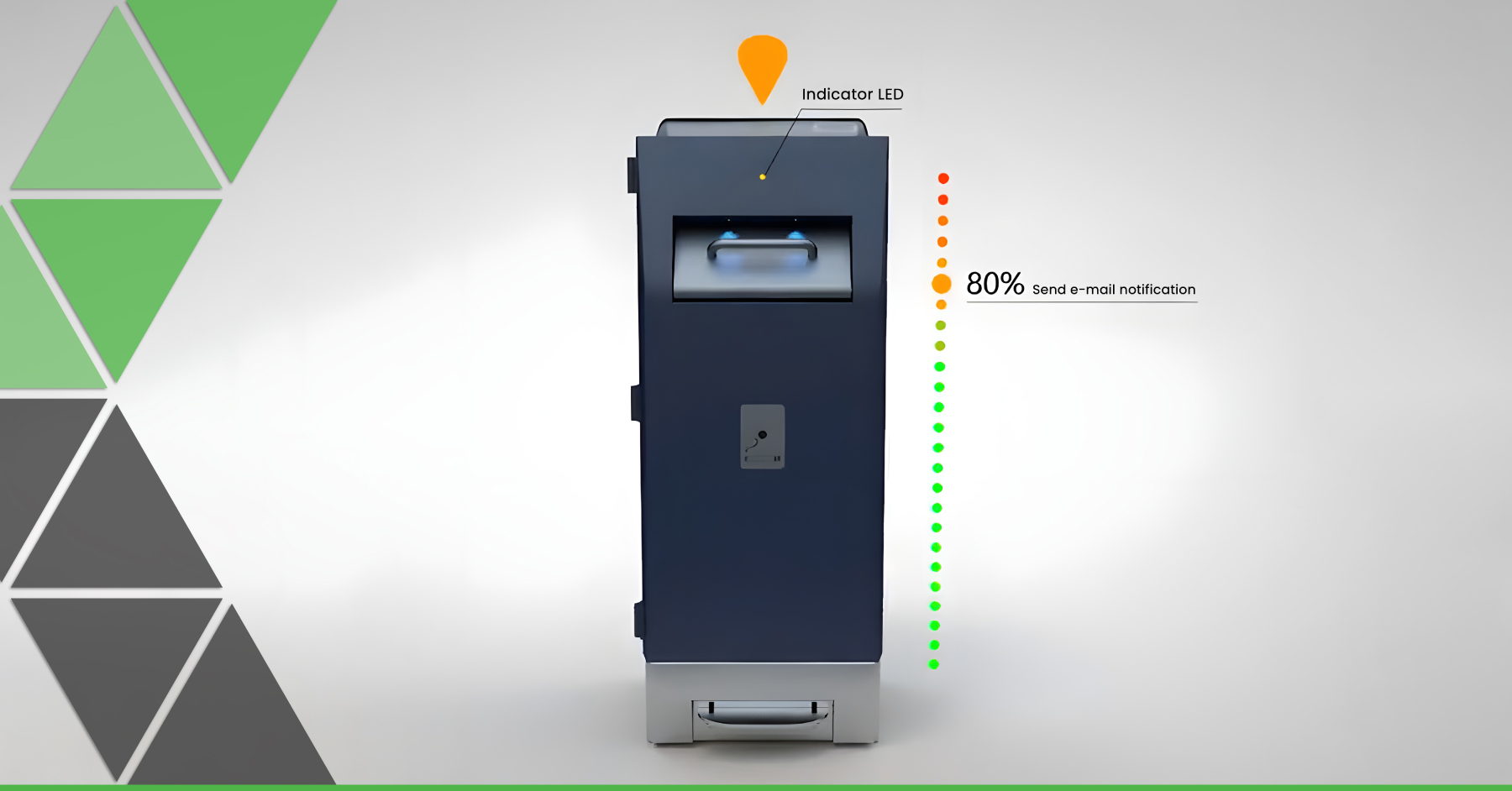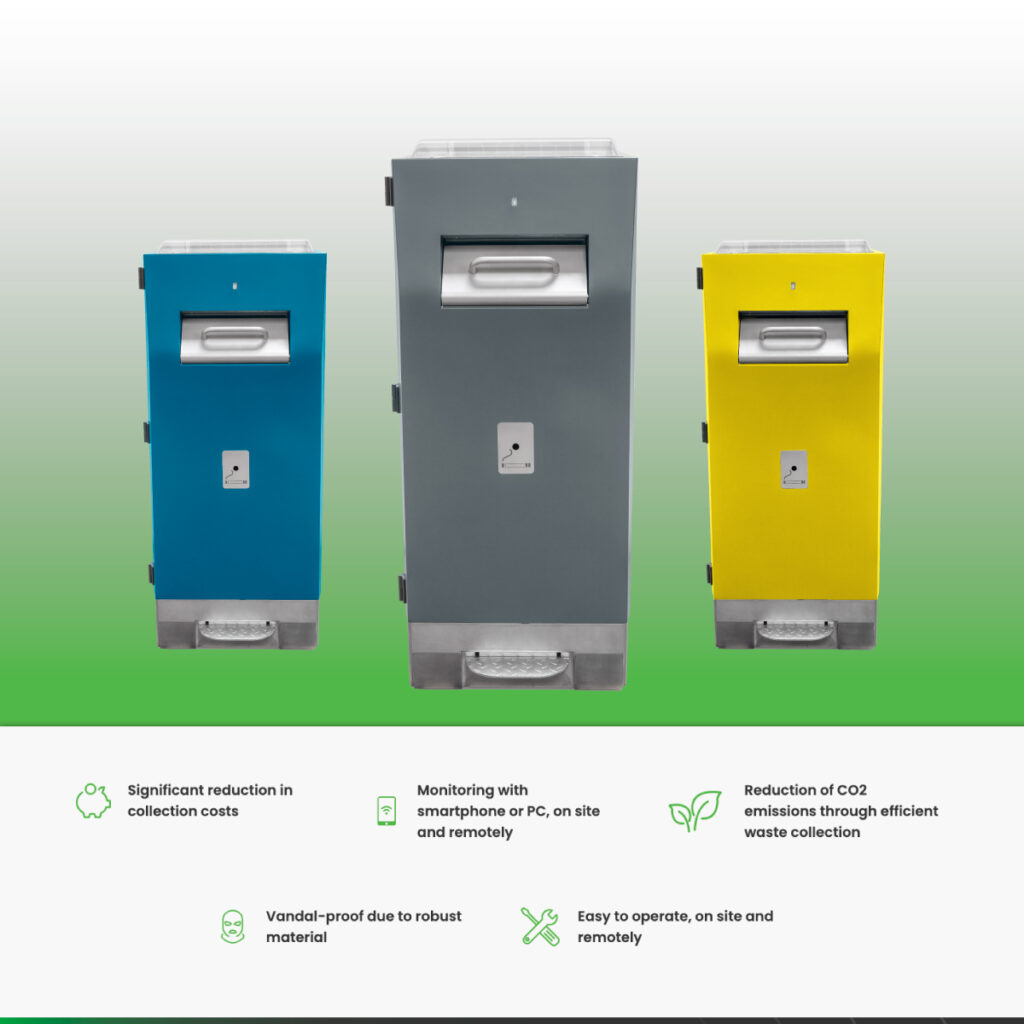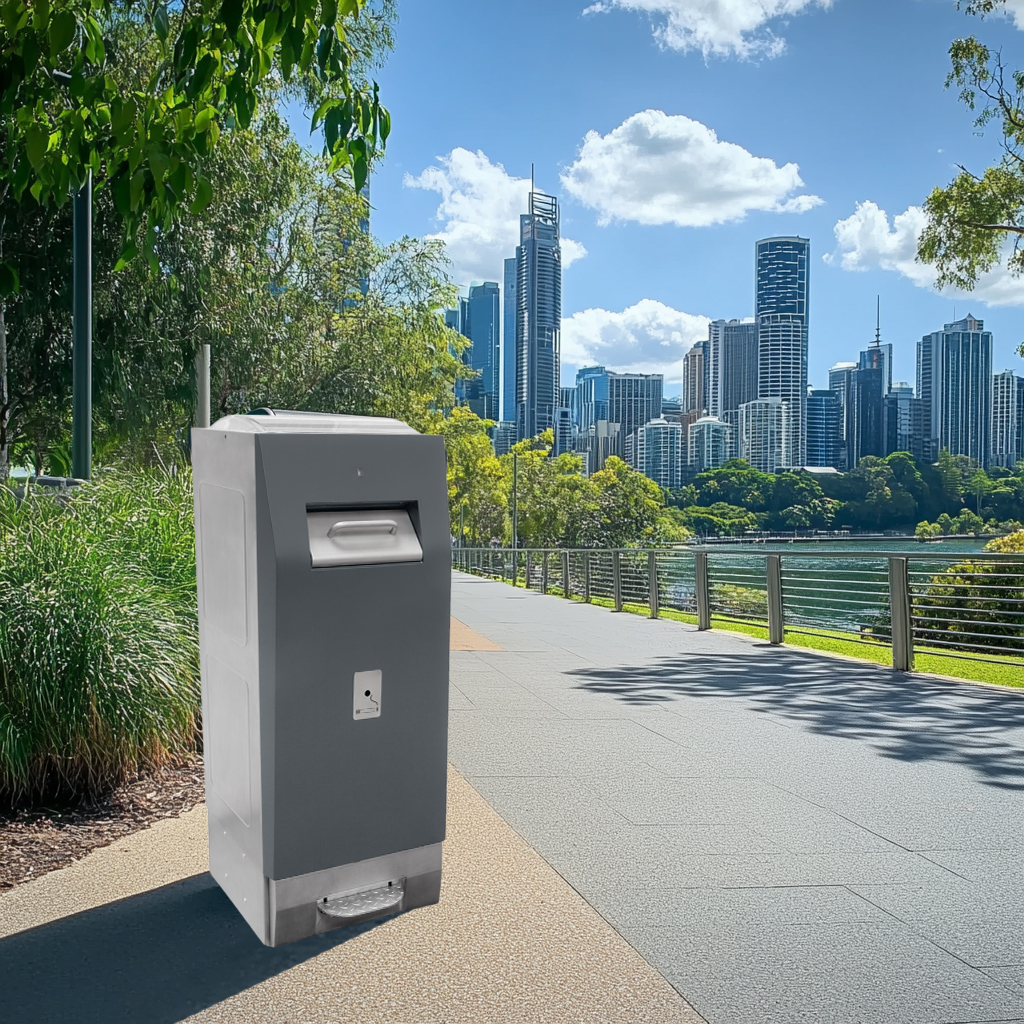
As Australia continues to face growing challenges in managing waste effectively, adopting smart waste management systems is becoming essential for a more sustainable future. By integrating cutting-edge technologies such as Internet of Things (IoT) and data analytics, smart waste management aims to enhance efficiency, reduce environmental impact, and contribute to cleaner, more sustainable communities. This blog explores the key benefits of smart waste management and how it can positively transform waste systems in Australia.
Understanding Smart Waste Management

Smart waste management refers to the use of technology to optimise waste collection, disposal, and recycling. Unlike traditional waste management systems, which often rely on fixed schedules and manual processes, smart waste systems are data-driven and use sensors, and real-time data to monitor and control waste handling operations.
How It Works:
- Sensors installed in waste bins detect fill levels and send signals to waste collection teams when they are full or need attention.
- AI Algorithms analyse waste patterns, helping to predict and optimise collection routes and schedules.
- Data Analytics provides insights into waste generation trends, helping cities and businesses make informed decisions on waste reduction and recycling efforts.
Australia has already started adopting these technologies in several cities, such as Sydney, Melbourne, and Brisbane, where smart bins and data-driven solutions are improving waste management systems.
Key Benefits of Smart Waste Management
Environmental Benefits
CO₂ Emission Reduction
One of the major benefits of smart waste management is the reduction in CO₂ emissions. Optimising collection routes and using GPS technology helps waste management fleets avoid unnecessary trips, reducing fuel consumption and vehicle emissions. This is particularly important in cities like Sydney and Melbourne, where traffic congestion can add to the carbon footprint of waste management operations.
Encouraging Recycling
Smart waste bins equipped with AI technology can automatically sort recyclable materials from general waste. This leads to higher recycling rates and ensures that recyclable items are processed efficiently. In Australia, where recycling rates are still under pressure due to contamination, smart bins make it easier for residents and businesses to contribute to recycling efforts, increasing the volume of recyclable materials collected.
Waste Generation Analysis
With smart waste management, cities and organisations can track and analyse waste generation patterns over time. Data collected from bins and trucks enables waste managers to identify trends, like areas with high waste generation or times of the year when waste increases. This allows for better resource allocation and more sustainable waste reduction strategies.
Waste Reduction
By using data to identify and monitor waste generation, businesses and local councils can implement targeted strategies to reduce waste. For example, identifying high-waste areas allows for the creation of specific campaigns to encourage waste minimisation, recycling, or composting, leading to a reduction in overall waste sent to landfills.
Economic and Operational Efficiency
Cost Savings & Cost Efficiency
Smart waste management reduces the operational costs of waste collection and disposal. With optimised collection routes, fewer trucks are required on the road, leading to savings on fuel, vehicle maintenance, and labour costs. In addition, by focusing on areas with higher waste volume, waste collection becomes more efficient, reducing the need for frequent pickups in areas with lower waste generation.
Optimised Routes
By using GPS and real-time data, waste collection routes can be optimised based on traffic, road conditions, and bin fill levels. This results in fewer trucks on the road, reducing both costs and traffic congestion. Cities like Melbourne have already implemented smart route optimisation, reducing unnecessary emissions and improving operational efficiencies.
Fewer Missed Pickups
Traditional waste management systems often rely on fixed schedules, which may result in missed pickups if bins are full or if the truck is delayed. With real-time monitoring, waste management teams are notified instantly when bins are full, ensuring that pickups happen on time and reducing the likelihood of overflowing bins.
More Efficient Collection
Smart bins notify collection services when they are full, preventing waste from accumulating on streets. These systems improve the overall efficiency of waste collection, ensuring that waste is collected on time, and bins don’t overflow, which could otherwise contribute to environmental and health issues.
Public Health and Hygiene Benefits
Improved Hygiene

With real-time monitoring and efficient collection systems, waste is removed promptly, reducing the chances of waste accumulation on streets or in public spaces. This helps maintain better hygiene, as decaying waste is a breeding ground for bacteria and pests. In Australian cities, particularly those with high foot traffic, maintaining hygiene in public spaces is a key priority.
Enhanced Public Health
By reducing waste-related issues like overflowing bins, pests, and unpleasant odours, smart waste management can contribute to improved public health. Communities with efficient waste collection systems see fewer health hazards related to waste contamination and a reduction in the spread of diseases caused by waste exposure.
Reduce Overflowing Bin Complaints
Overflowing bins are not only unsightly, but they also pose health risks. Smart waste systems monitor bin fill levels, ensuring that bins are emptied before they overflow, reducing the number of complaints from the public and improving the overall cleanliness of neighbourhoods.
Community and Sustainability Benefits
Transparency
Smart waste management provides transparency to residents and local governments by offering real-time data on waste collection schedules and bin fill levels. This builds trust and accountability within communities, as people can see that their waste is being handled effectively and efficiently.
Community Engagement
Engaging the community in recycling and waste reduction efforts is essential for achieving sustainability goals. Smart waste solutions offer features like rewards for recycling, gamification, and awareness campaigns that encourage people to take part in waste minimisation efforts. This helps create a culture of responsibility and care within communities.
Smart Recycling Initiatives
Sensor technologies enable the development of smarter recycling initiatives. Smart bins equipped with sensors can distinguish between recyclables and non-recyclables, ensuring that recyclable materials are sorted and processed appropriately. Additionally, some systems offer incentives, such as rewards or discounts, for users who actively participate in recycling programs.
Sustainability
Sustainability is at the heart of smart waste management. By reducing landfill waste, increasing recycling, and optimising waste collection processes, smart systems contribute significantly to a cleaner, greener environment. This aligns with Australia’s sustainability goals, helping to reduce pollution and conserve natural resources.
Addressing Common Waste Management Challenges
Mitigation of Traffic Congestion
One of the often-overlooked benefits of smart waste management is its ability to reduce traffic congestion. By optimising waste collection routes and scheduling pickups during off-peak hours, cities can minimise the number of waste trucks on the roads during rush hours, helping to reduce traffic and emissions in high-density urban areas.
Improved Waste Segregation
Effective waste segregation is crucial for successful recycling. Smart waste management systems equipped with AI can help segregate waste into the correct categories at the source. This leads to better quality recycling materials and reduces contamination in recycling streams, which has been a challenge in Australia’s waste management systems.
Environmental Issues
Smart waste management systems are designed to tackle pressing environmental issues like landfills overflowing, waste contamination, and improper disposal. By improving waste segregation, increasing recycling rates, and reducing the environmental footprint of waste collection, smart solutions can help mitigate the impact of waste on the environment
The Future of Smart Waste Management in Australia
The future of smart waste management in Australia is promising. As technology continues to evolve, machine learning, and data analytics will further enhance waste management systems. Australian cities are already seeing positive changes, with local councils implementing smart bins, intelligent waste tracking, and improved recycling initiatives.
Government support through policies, grants, and public-private partnerships will likely encourage more widespread adoption of these technologies. Furthermore, as sustainability goals become more stringent, smart waste management will play a vital role in achieving these objectives while improving efficiency and reducing costs.
Conclusion
Smart waste management presents a win-win solution for Australia, addressing environmental, economic, and public health challenges while promoting sustainability. From CO₂ emission reduction to smarter recycling initiatives and cost-saving benefits, the integration of technology into waste management is an essential step toward a cleaner and greener future. By embracing these innovations, we can move towards a more sustainable waste system, benefiting both the environment and our communities.


